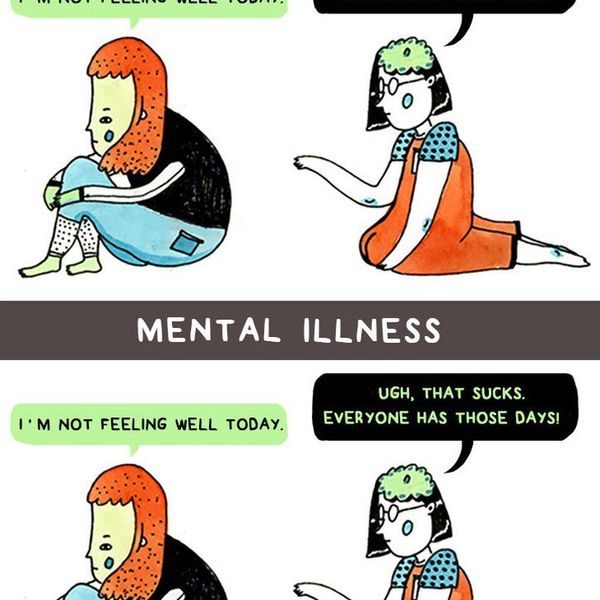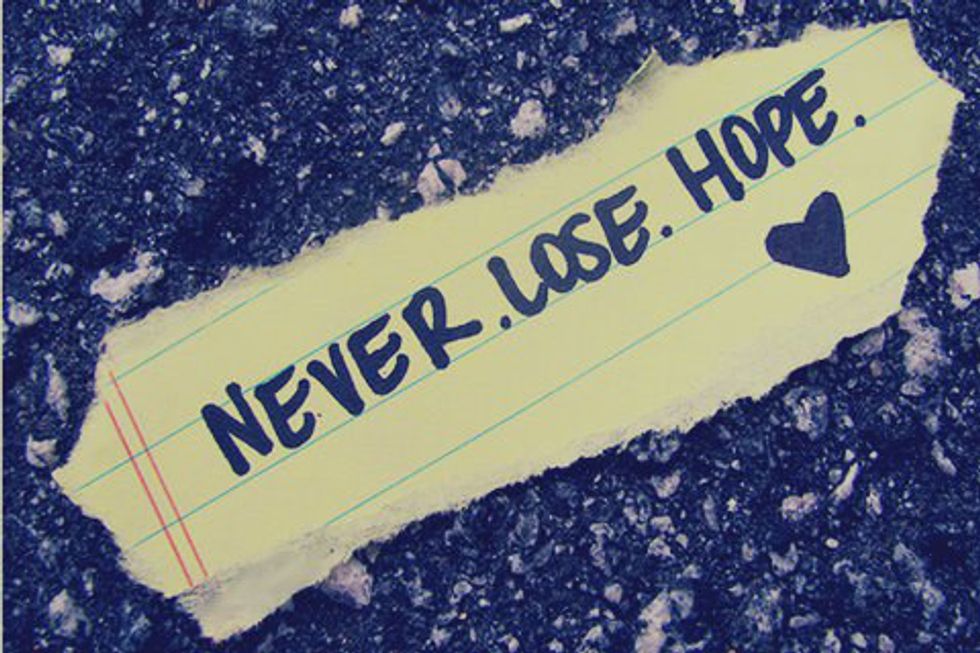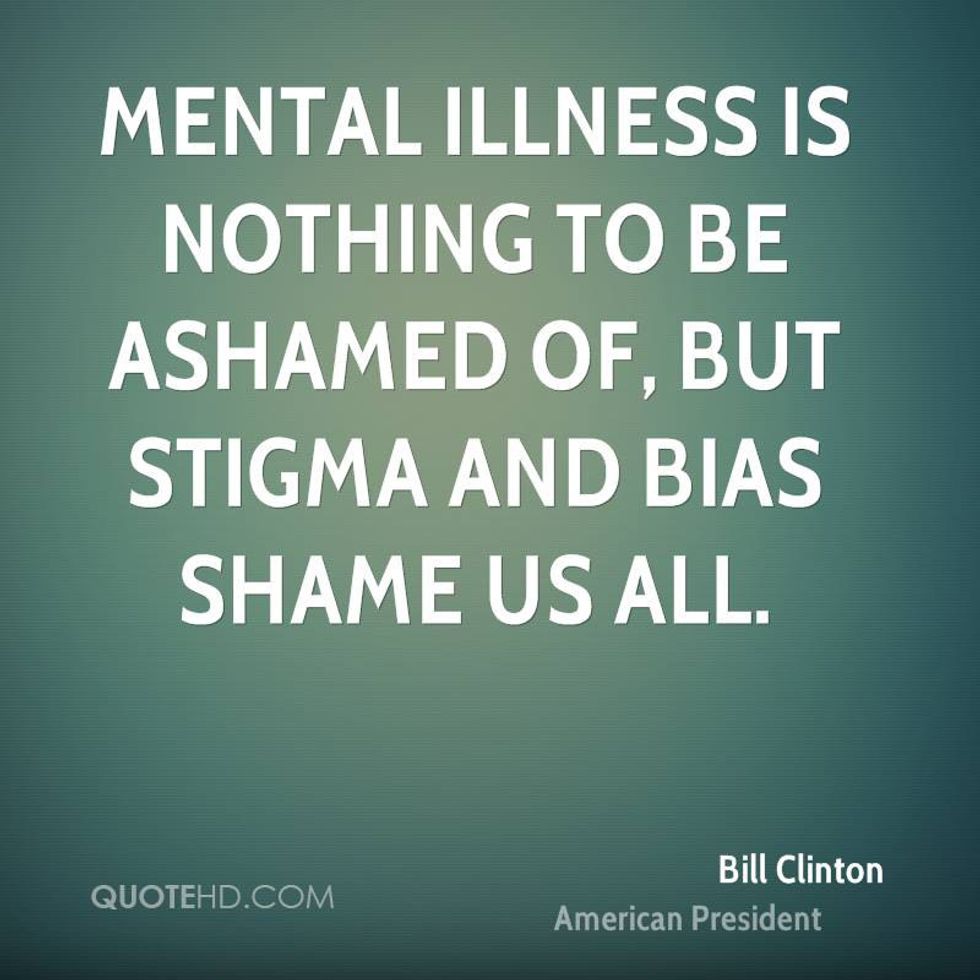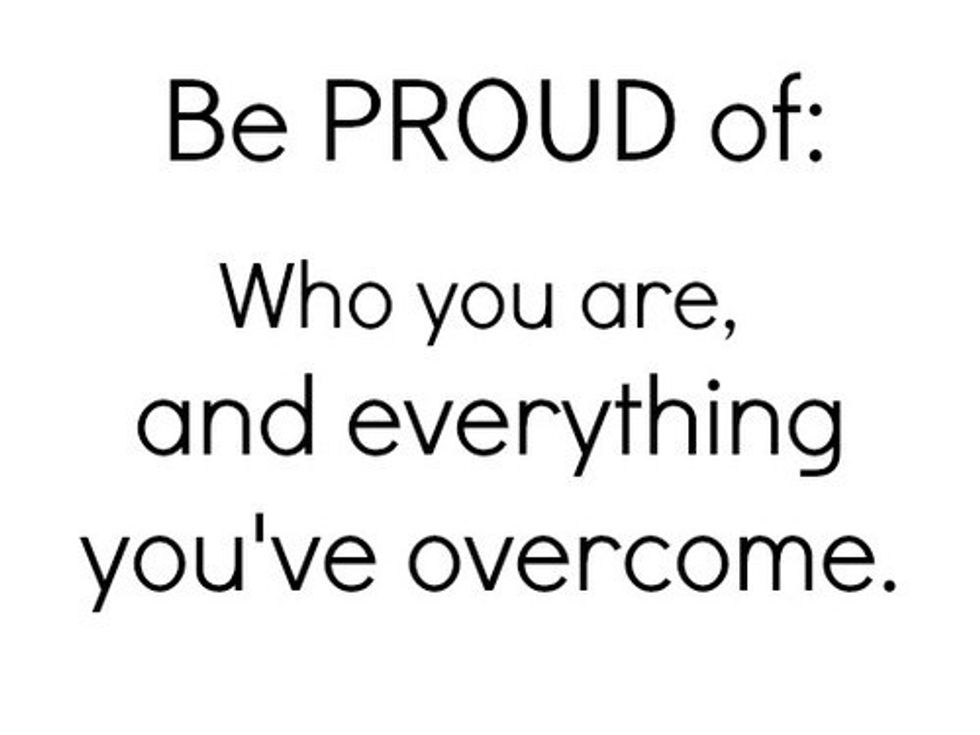We all know we should take care of our whole selves--physically, mentally, and emotionally. Yet, many of us perceive emotional and mental well-being as less important than physical well-being. Our society has developed a stigma towards mental and emotional stability--and how to deal with it. It seems we've all adopted the notion that we must fend for ourselves and recede into privacy rather than address mental and emotional distress head on.
Why?
Mental and emotional health is just as important as physical health, and just because stress, depression, or anxiety aren't as obvious to diagnose and treat as a broken bone or sprained ankle doesn't mean the symptoms should be ignored. Too many people let such ailments go untreated, leading to tragic consequences including suicide, the tenth leading cause of death among all age groups (CDC).
It's time society took a stand against the stereotypes that plague mental and emotional ailments and started working toward a more caring, understanding lifestyle.
The Stigmas
Therapy
When discussing therapy and counseling, many individuals reply with, "I don't need it, I'm fine." There seems to be a stereotype that only people with serious, diagnosed mental disturbances need therapy, but seeing a therapist or counselor is both healthy and normal. Therapists' and counselors' jobs are to listen, and everyone needs someone to talk to at one point or another. Students, especially, should understand that talking to a guidance counselor or school psychologist isn't something to be embarrassed about. Your friends won't think you're a bad person because you looked for help. You are human, and everybody needs help sometimes. Making the first step, that is seeking the help of a therapist or counselor, is the scariest and most difficult part, but it is absolutely necessary in getting better. Individuals don't need to have so-called "serious mental disturbances" to attend counseling, either. Talking to someone when under stress, dealing with a breakup or family issues, or simply having a bad day is absolutely justified reason for seeking help. Therapy isn't bad, and society should start to see it as a benefit rather than a place for crazy people.
Mental Illnesses
A gross stereotype plaguing society is that centered around mental illness and individuals affected by it. Why do we so often see individuals that suffer from illnesses such as depression, anxiety, eating disorders, and bipolar disorder as 'alien?' Thinking about conditions like schizophrenia and mania, the stigma holds even truer. Yet, we do not see individuals with casts, band-aids, or crutches as 'foreign.' We've come to understand that most physical ailments can be healed, some with more severe treatment than others, and those physical ailments that can't be healed, such as paralysis, are viewed as challenges and struggles that individuals learn to live with and overcome in daily life. We seem to be unable to do the same for mental and emotional illnesses, despite the fact that many of these ailments are very treatable the same way a broken bone is. Yes, the treatments are different, but the results are the same: healthy, happy people. Individuals with mental illness are no different than those without. Let's stop treating them like they are.
Suicide
Some of the most striking stereotypes exist around suicide and the people it affects. Suicide is incredibly serious and entirely preventable, yet stigmas still exist, claiming, "People that try to kill themselves are just crazy," or, "There's nothing you can do to stop someone from dying by suicide." It is important to understand that individuals that consider, attempt, or die by suicide are not crazy. In fact, they often don't want to die. Suicide is a permanent solution to a temporary problem. It is important to eliminate the stigmas associated with mental illness as they feed into the stigmas associated with suicide.
The Solution
While there is no way to completely eradicate stereotypes, there are things that can be done to limit the spread of false information, which is often the root of stereotypes. There are a multitude of resources available containing facts and explanations for many stereotypes discussed above. Check out some of the resources below, start a discussion, attend a conference in your area, or share the truth about mental and emotional illnesses. Everyone has bad days, and everyone could use a hand. Together we can rid society of the stigmas plaguing mental and emotional health and start living healthier, happier lives.
To learn more, please visit:
If you or someone you know is in distress, please contact the National Suicide Prevention Line:
http://www.suicidepreventionlifeline.org/
1-800-273-TALK (8255)


























